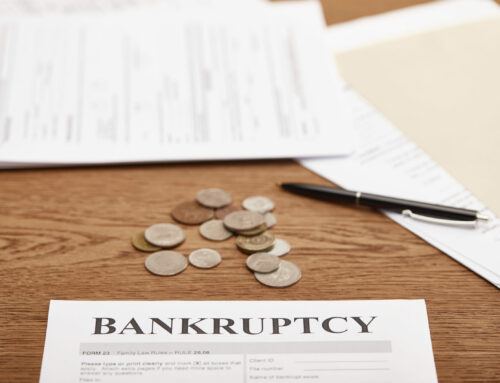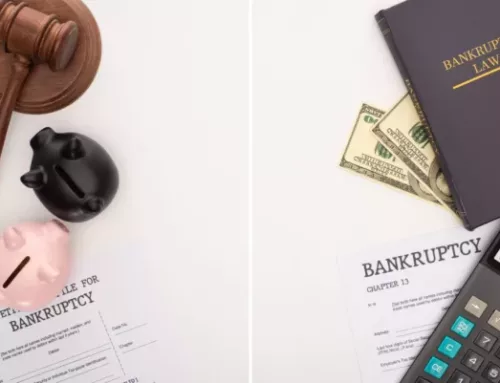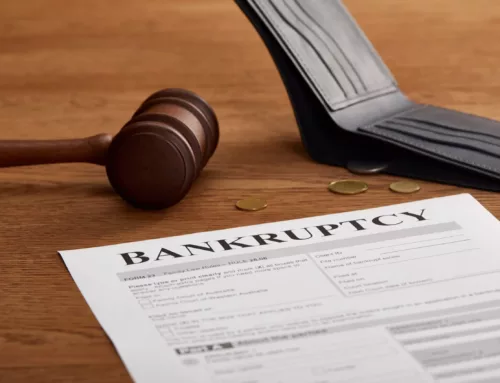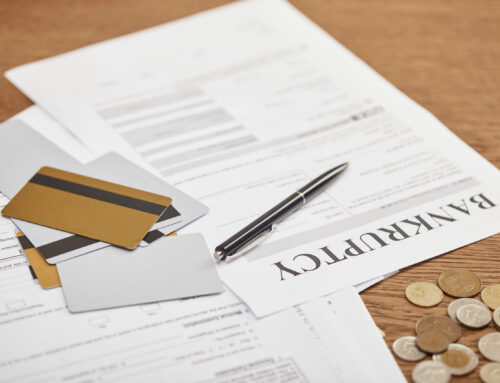Reclaiming Financial Freedom Through Bankruptcy Considerations
Are you considering filing for bankruptcy in Mississippi but feeling overwhelmed by the complications of the process? Filing for bankruptcy can be daunting, but it may offer a fresh start and financial relief for individuals or businesses struggling with overwhelming debt. Understanding the process, eligibility criteria, and potential consequences will help you decide whether bankruptcy is the right solution.
At The Rollins Firm, our Jackson bankruptcy attorneys understand the emotional and financial challenges you may be facing. We are here to provide you with the legal support and guidance you need to navigate through the complexities of bankruptcy law.
This article will give you an overview of the various aspects of filing for bankruptcy in Mississippi, providing you with the information you need to decide your financial future.
- Types of Bankruptcy
- Eligibility and Means Test
- The Automatic Stay
- Credit Counseling and Financial Management Course
- Exempt and Non-Exempt Property
- Discharge of Debts
- Impact on Credit Score
Types of Bankruptcy
If you’re struggling with overwhelming debt, you can consider filing two common types of bankruptcy: Chapter 7 and Chapter 13 default. Each chapter offers distinct benefits and considerations, catering to different financial situations and goals. Our Jackson bankruptcy lawyer can help you determine the most suitable bankruptcy type for your circumstances.
Chapter 7 Bankruptcy
Chapter 7 bankruptcy, or “liquidation bankruptcy,” is designed for individuals and businesses with limited assets and insufficient income to repay their debts. Under Chapter 7, eligible debts are discharged, allowing you to obtain a fresh financial start.
A bankruptcy trustee is appointed to oversee the process in this type of bankruptcy. Non-exempt assets you own, such as certain luxury items or valuable property, may be sold or liquidated to repay creditors.
Chapter 13 Bankruptcy
Chapter 13 bankruptcy, also known as “reorganization bankruptcy,” is suited for individuals with a stable income who want to repay their debts over time without losing their assets. Under Chapter 13, you can propose a repayment plan that spans three to five years. The plan outlines how you will repay your debts through manageable monthly installments. Unlike Chapter 7, Chapter 13 allows you to retain your assets and avoid liquidation. Instead, you can work towards repaying your debts over the plan’s duration.
To qualify for Chapter 13 bankruptcy, you must have a regular income that enables you to fund the proposed repayment plan. Upon completing the Chapter 13 repayment plan, you may receive a discharge for qualifying remaining debts.
Eligibility and Means Test
To file for bankruptcy in Mississippi, you must meet eligibility requirements. To qualify for Chapter 7 bankruptcy, you must pass the means test, which assesses your income, expenses, and family size to determine eligibility.
The means test compares your income to the state’s median income, and if your income is below the median, you are generally eligible for Chapter 7. Additional calculations are done to determine eligibility if your income exceeds the median. Our Jackson bankruptcy lawyer can assess your eligibility for bankruptcy through a detailed assessment of your financial situation, revenue, and debts.
The Automatic Stay
One benefit of filing for bankruptcy is the automatic stay. The automatic stay takes effect when a bankruptcy case is initiated, whether it is Chapter 7 or Chapter 13.
When the automatic stay is triggered, it stops all collection actions, foreclosure proceedings, wage garnishments, and creditor harassment. This temporary protection provides breathing room to assess your financial situation without constant pressure from creditors.
Credit Counseling and Financial Management Course
Before filing for bankruptcy, you must complete credit counseling with an approved agency. This counseling session will help you explore alternatives to bankruptcy and provide valuable insights into your financial situation. Additionally, after filing, you must attend a financial management course to enhance your financial management skills and increase your chances of successful debt management in the future.
Exempt and Non-Exempt Property
By claiming exemptions, bankruptcy filers can protect certain assets from liquidation during Chapter 7 bankruptcy. Understanding which assets are exempt and non-exempt is crucial to protecting your property during bankruptcy.
Exempt Property
Exempt property refers to assets and possessions protected under state or federal bankruptcy laws, and the debtor can retain it even after filing for bankruptcy. These exemptions allow you to keep essential possessions, such as your home, car, clothing, and household goods, up to certain value limits. The primary purpose of exemptions is to ensure that debtors do not lose all of their belongings and have the means to maintain a basic standard of living during and after the bankruptcy process.
Non-Exempt Property
Non-exempt property refers to assets not protected by bankruptcy exemptions and may be subject to liquidation by the bankruptcy trustee. The proceeds from the sale of non-exempt assets are used to repay creditors as part of the debtor’s debt restructuring or liquidation plan.
Discharge of Debts
Upon successful completion of your bankruptcy case, eligible debts will be discharged, meaning you are no longer legally obligated to pay them. However, not all debts can be discharged, and certain obligations, such as taxes, student loans, and child support, will generally remain non-dischargeable.
Impact on Credit Score
Bankruptcy can impact your credit score and remain on your credit report for several years. A Chapter 7 bankruptcy can remain on a credit report for up to ten years from the filing date, while a Chapter 13 bankruptcy can stay on the report for up to seven years.
During this time, the bankruptcy will be visible to lenders and creditors, potentially impacting future credit applications. However, seeking guidance from our Jackson, MS, bankruptcy attorney and taking proactive steps to rebuild your credit after bankruptcy is possible and can lead to a brighter future.
How Can Our Jackson Bankruptcy Lawyer Help in Considering Filing For Bankruptcy?
Filing for bankruptcy in Mississippi is a serious decision that requires careful evaluation of your financial circumstances, goals, and available options. Bankruptcy can offer a fresh start and relief from overwhelming debt, but it also has consequences.
Before making any decisions, it is advisable to consult with our Jackson bankruptcy attorneys at The Rollins Firm to assess your unique financial situation and explore all available options. Our bankruptcy law firm is committed to protecting your rights and interests throughout the bankruptcy proceedings. We take time to understand your unique needs, allowing us to determine the most effective debt relief solutions for your situation.
With our guidance and advocacy, you can confidently navigate the bankruptcy process and work towards achieving a fresh start and a brighter financial future. Contact us today to schedule a free consultation to explore your options and take the first step toward regaining control of your life.








Connect with Us